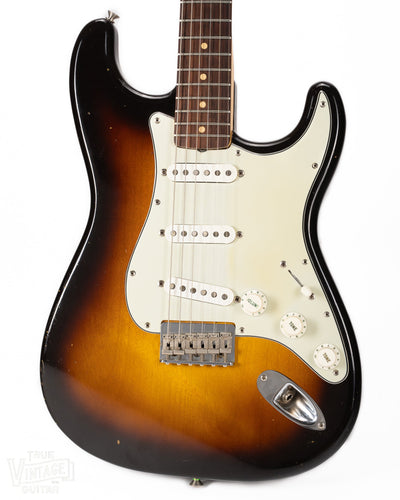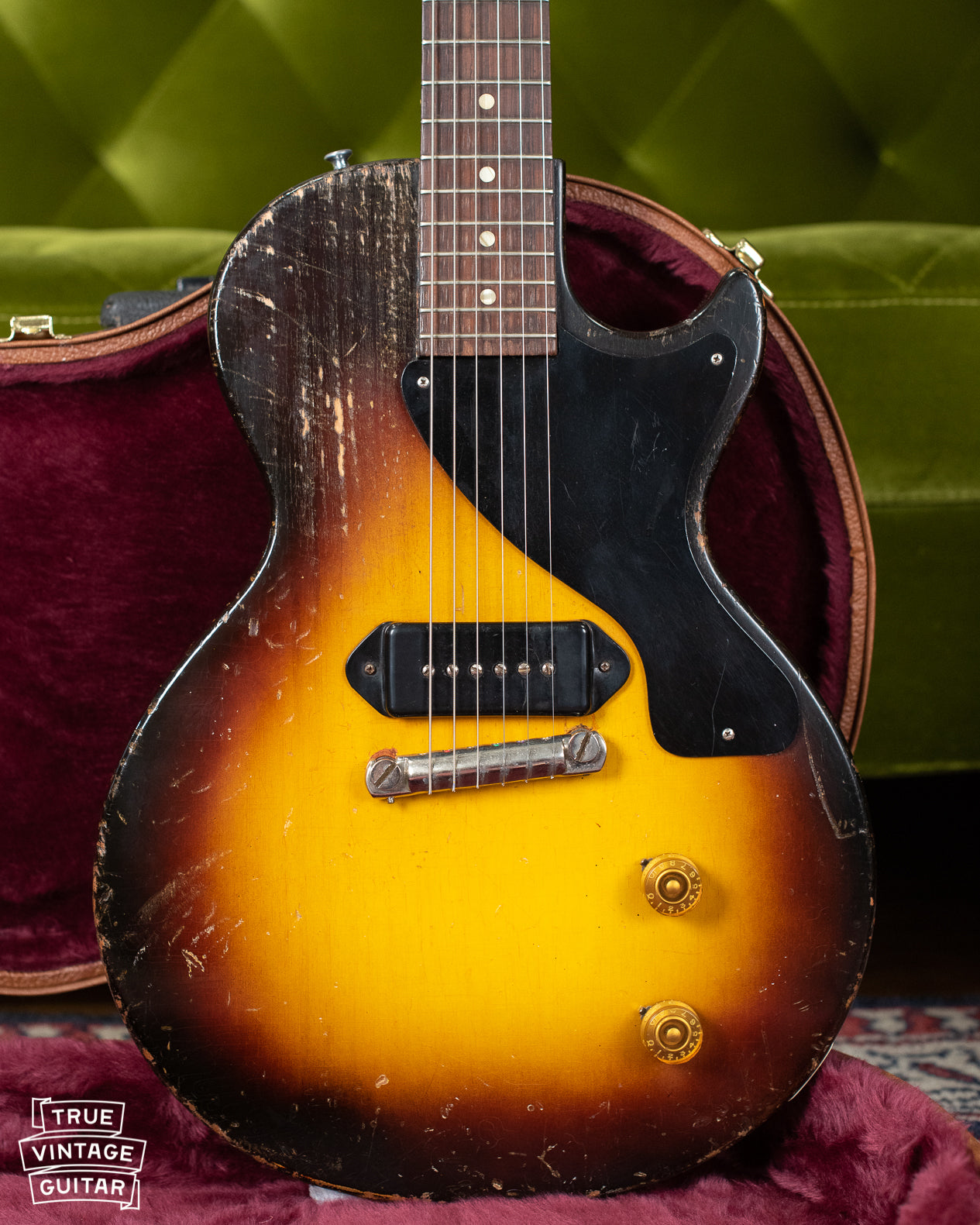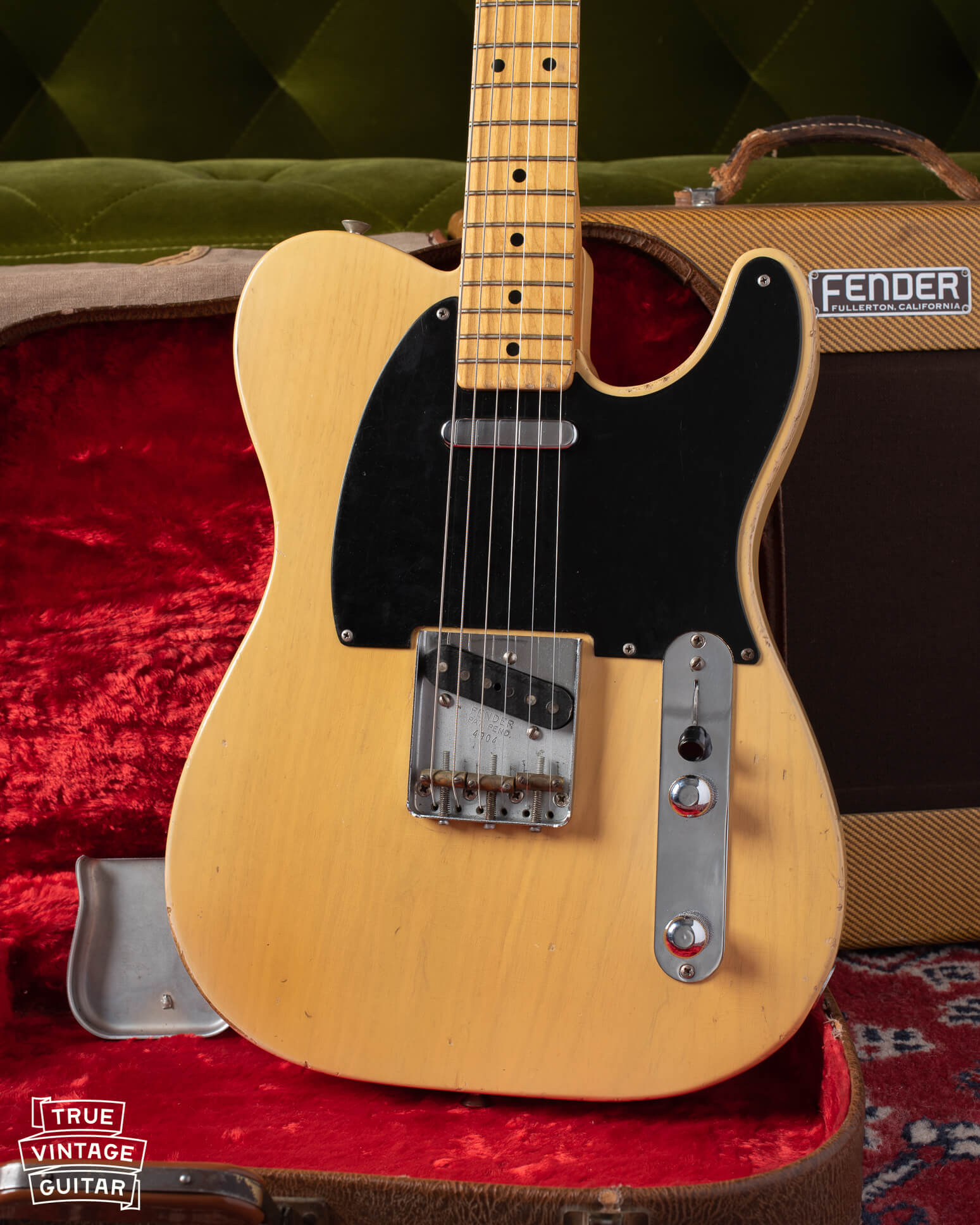There is something different about a Fender Stratocaster that's been lovingly played and cherished for half a century. My favorite Stratocaster we've been fortunate enough to have in the shop this year, and frankly one of my favorite guitars of all time was a 1960 Fender Stratocaster in sunburst. Sounds boring right? Well, this Strat has a trick up its sleeve. It left the factory with a "Hardtail" configuration.

We love vintage Fender guitars made during the early 1960s. You can contact us here if you're looking to sell one: Sell a Fender
If you're looking for help dating your Fender: Fender Serial Number Lookup
Why Hardtail?
Non-Tremolo or "Hardtail" Stratocasters are an incredibly rare spec to see from a 1960s Fender Guitar. Rather than using the Strat's infamous tremolo system, some Strats were fitted with hardtail systems that mimicked the simplicity of a Telecaster. 6 hole slots drilled through the body which is identical to most Tele's "string through" design. There is no tremolo plate or cavity, no springs, no tailpiece block, and NO tremolo. I believe, due to the simplicity of the design, it can result in the final product being lighter since it lacks all of the necessary metals the tremolo system requires. Our beautiful 1960 Hardtail Stratocaster weighed in at an astonishing 6.9 LBS and 3.15 KG. To any player that has gigged most of their life, you know how much of an advantage that is.
You might be thinking, "But Mr. Vintage Guitar Guy, why would anyone prefer this over the tremolo system!?" To that I say, let's briefly discuss each option and although I can't offer both versions of Strats for our readers to play, hopefully this will be enough for you to make your own opinion.

Tremolo Vs. Hardtail
The Stratocaster - A guitar player's best friend and greatest confidant. Always reliable, always comfortable, and ALWAYS versatile. In the early 1950s, Fender really went to work in the lab to make the Stratocaster as perfect as possible and developed a plethora of revolutionary features. By 1960, Fender had more than perfected the instrument. One of the features is the Strat's infamous integrated synchronised tremolo system, which at the time gave player's the best opportunity to manipulate the the strings while remaining in tune. Although it would be quite a few years before Jimi Hendrix showcased how far you could push the tremolo system, players were still able to confidently make unique sounds with their trusty Strats and push the music scene to places it had never been.
The biggest lesson a player can learn is less is more. The hardtail Strat exemplifies this idea by deleting distractions and temptations. "You're not Jimi kid, put down the tremolo arm!" All jokes aside, you can clearly tell that even if notable players didn't play real hardtail Strats, that's the vibe they were after. Two Stratocaster legends immediately come to mind, Eric Clapton and John Mayer. While they don't use string through hardtail designs on the Strats they're known for playing, both players have blocked the tremolo system. Either by blocking the tremolo block with a piece of wood, or simply adding maximum springs so the bridge can't float or move, these icons both fashioned their own take on hardtail Strats.

While the tremolo system may offer slightly better tuning stability, both bridge designs use the same adjustable saddles that offer perfect action and intonation. By nature this topic is subjective, and it's been proven that the tremolo system is by far the more desired of the two, hence the hardtail's rarity and Fender's reluctance to manufacture a large quantity of examples back in the 1960s and even today. Despite this, I believe the hardtail is the superior of the two. The first reason is that a guitar can never be too light, and the second is that a hardtail plays and sounds different in a very satisfying way. You notice the strings vibrate differently and the tone is a little twangier than you're use to hearing from Strats. Because of there rarity and uniqueness, I believe hardtail Strats are the perfect instrument. We'd love to hear your thoughts in the comments below.
If you're interested in selling your Stratocaster or any other Fender, Contact us here.




Comments
I have an Hardtail Stratocaster and it is necessary to me because I play slide ( Sonny Landreth style ) and I use many different tunings, almost 14, and I need the Hardtail bridge to change tuning quickly! I have the Tronical electronic tuner on the headstock to change tuning very fast!
Yes, I have a hard tail Strat with locking tuners and a Sunburst finish that is just terrific. Stays in tune and I have never been a big tremolo guy even though I have other guitars with them.